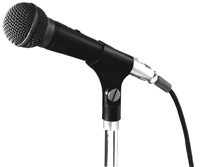Libraries at University of Nebraska-Lincoln

University of Nebraska-Lincoln Libraries: Presentations
ORCID IDs
Date of this Version
6-9-2007
Document Type
Article
Abstract
For the past year and a half I have been engaged in publishing open-access online editions of primary works of early American history and literature. Currently, about 40 of these are posted in the University of Nebraska–Lincoln’s institutional repository, at http://digitalcommons.unl.edu/etas . My paper for the OIEAHC & SEA session will include: 1) a recap of issues faced and problems solved in designing and creating these electronic books; 2) an outline of editorial principles and guidelines for selection, textual editing, and annotation of works in the series; 3) a report on dissemination and usage data (specifically links and download statistics); 4) an invitation to scholars of early American studies to contribute and publish additional materials; and 5) a proposal to enlist scholars of early American studies to participate in developing a peer-review process for the series.
The field of early American studies has long been hampered by the relative unavailability of primary materials, and this affects both teaching and scholarly research. Traditional commercial and academic publishers are not interested in less-than-book-length works with limited audience. Many works that are not anthologized cannot be effectively taught; and no anthology ever corresponds exactly to an instructor’s syllabus and aims. Recently, commercial databases have been developed that present many previously unavailable works, but their expense limits them to major universities, and their presentation of materials (as page-images rather than text) limits their usefulness to students and researchers.
The “Electronic Texts in American Studies” series presents works in a text-based screen-friendly PDF format that are available to all, are easily printable and linkable, and yet still replicate the look and “feel” of the original documents.
One advantage of the institutional repository setting is that it allows for long-distance collaboration and submission of materials. As one person, working alone, I can manage to post perhaps 35 to 40 documents annually. As a series editor, however, I could review, accept, format, and publish up to ten times that number. Outside scholars could select and prepare texts that they wished to see published or wished to assign for courses, and these could have fast and worldwide electronic publication, and a permanent online home. The greatest potential of the Internet lies in this sort of decentralized access to the means of production.
To motivate scholars and to provide additional incentives for such editorial projects, I want to appeal for help in making such publications peer-reviewed; i.e. to make a call for volunteers to an editorial board that would review and provide certification for these electronic editions. Such peer-reviewed texts would have greater authority in the field and would also carry substantial weight in the tenure considerations of the respective editors and scholars. Members of the SEA are clearly the professional group most qualified to provide such guidance and certification.
The PowerPoint presentation file


Comments
Presentation for Fifth Biennial Conference of the Society of Early Americanists, Williamsburg, VA, June 9, 2007